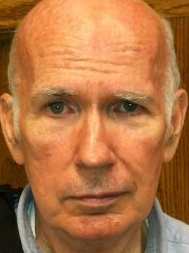the
CRIMES AND
PUNISHMENTS
columm
SMOKE BLOWERS

by
DONALD DEWEY
_________________________
Donald
Dewey has written some 40 books of fiction and nonfiction, as
well as contributed scores of stories to magazines and other periodicals.
He has also had some 30 plays staged in Europe and the United
States. Dewey was editor of the ASME-award winning magazine Attenzione
and was editorial director of the East-West Network, overseeing
a dozen in-flight magazines and the PBS organ Dial. His most recent
thriller novel is Red
Herrings.
In case you haven't
noticed, whistle blowers have become as much of a threat as suicide-bent
terrorists. In their zeal for causing eruptions, they mock the
institutional serenity of society, jeopardizing its government
and corporate constituents. The whistle blower's violation of
the eleventh commandment of don't-ask-don't-tell has become decadent
habit, exposing a whimsical sense of loyalty and overly friendly
relations with a demonic agent of the media. Most whistle blowers
claim they act for such abstract principles as legality, honesty
and truth, but that is also what a raccoon caught ferreting in
a dumpster would say.
The most
noted whistle blower of recent decades was undoubtedly ‘Deep
Throat’ from the 1970s Watergate scandal. But whether the
shadowy figure in the Bob Woodward-Carl Bernstein book, the Hal
Holbrook character in its film adaptation, or the informant ultimately
identified as associate FBI director Mark Felt, Deep Throat had
something going for him that many whistle blowers of our day do
not -- he was viewed as an anti-corruption force without which
bad guys would have been free to continue their mischief. How
tempus can fugit!
Nowadays
a whistle blower is the obnoxious kid in fifth grade who told
the teacher who in the class threw the spitball at him. In good
part because of the moral deformities unleashed on the land around,
oh, let's say, January 21, 2017, there has been increasingly more
effort spent on prosecuting the identity of the whistle blower
than on dealing with the evils denounced. This attitude stems
in part from an understandable trepidation that the whistle blower
might be an illegal alien or a pole dancer with a big black book.
More generally, it
dovetails with the precept popularized by Bugsy Siegel that what
happens in Vegas stays in Vegas. It says a lot about Siegel's
perspicacity that his warning could be as applicable to strongarming
Ukrainian politicians over millions of dollars in military aid
as to denying intimacy with pricey hookers.
But politics
have been merely one arena where whistle blowers have been an
annoyance of late.
Coverage
of the sign-stealing manipulations of the Houston Astros on their
way to World Series victory in 2017 went into high gear after
Mike Fiers, a team pitcher during the season, came forward with
particulars about what had been going on in his dugout, this leading
to an official investigation that ultimately cost three managers
and one general manager their jobs. Fiers a force for justice?
Not at all.
According
to Jessica Mendoza, the ethical colour commentator for ESPN's
Sunday Night Baseball, for instance, the pitcher broke an unwritten
clubhouse rule never to tattle on the dubious activities of teammates,
coaches, or front office personnel. The clubhouse, she insisted,
should be sacred enough to accommodate the Torah or a Holy Communion
chalice. Mendoza's contention was backed by, among others, Hall
of Fame pitcher Pedro Martinez. The Jock Wall of Silence had to
be maintained.
If this
sounds slightly familiar, it's because you have heard about the
Blue Wall of Silence endemic to police forces not attired in chartreuse.
It is a given, as we have been told on 30 cop shows a day, that
a cop doesn't squeal on another cop. More than that, when a cop
does something at odds with the penal code, the Blue Wall of Silence
is shipped to court houses on arraignment days so dozens of fellow
officers can demonstrate ‘solidarity’ with the arrested
one. Complaints that these exhibitions often resemble an attempt
at intimidation are routinely shrugged off. Objections that the
cops would be the first to criticize a similar gathering of teachers
in ‘solidarity’ with one of their number accused of
molesting a student nets only a reply of "that's different."
And indeed it is: as brutal and disturbing as a case of child
molestation can be, the victim usually remains alive, as opposed
to a more than periodic occurrence of civilians killed during
police actions.
But there
is also the bigger picture. What do attempted coverups over military
aid to Ukraine, knowing whether a fast ball or a curve is
coming, and solidarity thuggery have in common? It should be plain
enough: Us. Policemen are civil servants whose first responsibility
is to protect the public, not form a ring around one of their
number who has been accused of a crime.
Baseball
fans pay increasingly outrageous prices even for upper left field
tickets and should have the expectation that the playing field
they can dimly see is level. Elected governments are supposed
to act in the interests of a nation, not in those of a would-be
despot. The shriller the voices trying to block out these reminders,
the more resonant the need for whistle blowers.